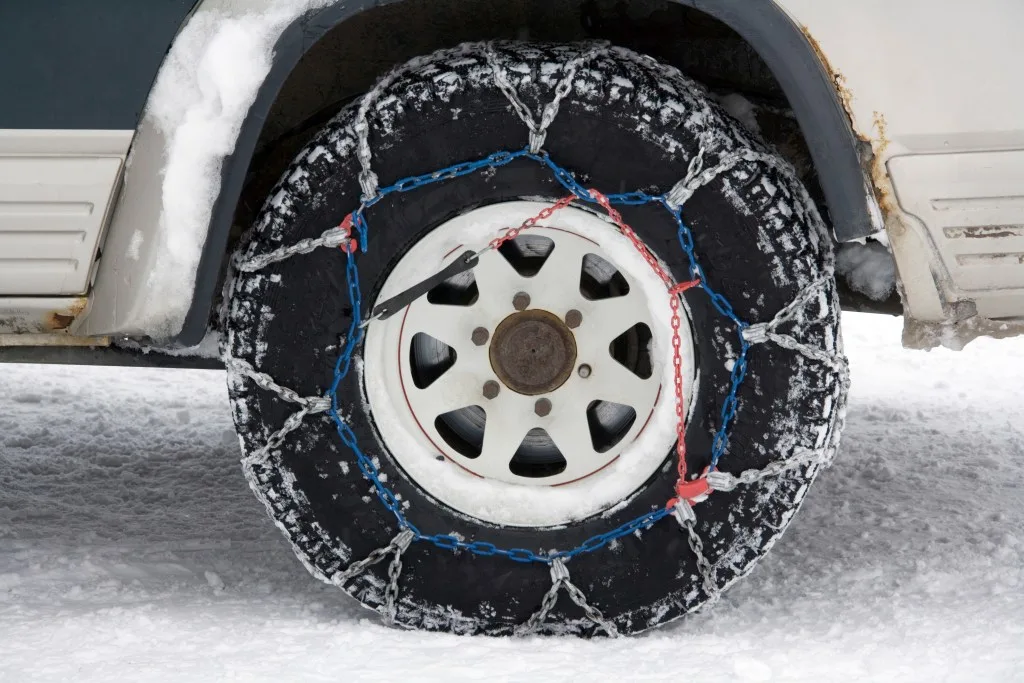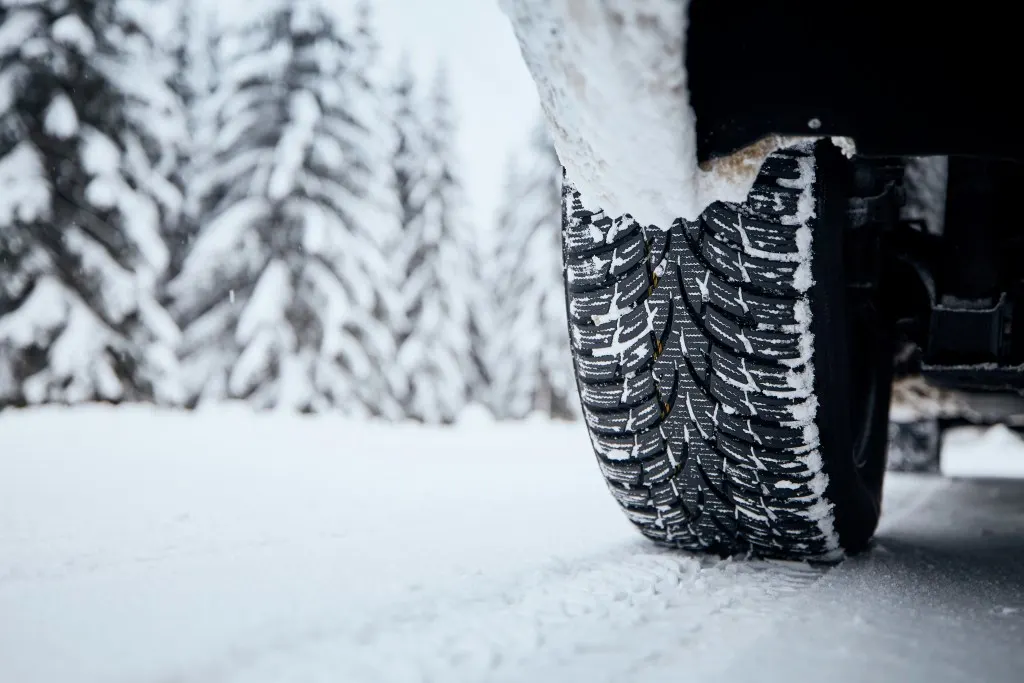Driving an RV under normal circumstances can be scary. However, getting behind the wheel of an RV can be a nightmare when the weather doesn’t cooperate.
You have to take your safety seriously if you find yourself RVing in the snow. Today, we’ll help you to know what to do so you can avoid a nightmare while RVing.
Can RVs Be Used in the Winter?
An RV is a great way to enjoy year-round adventures. Not only can you enjoy RVing in the summer, but winter RV adventures can be equally as great. The weather might not be nearly as warm as other times of the year, but you can avoid crowds at some of the most popular tourist spots. If you’re not a fan of crowds, winter RVing might be your cup of tea!
When using an RV in the winter, you’ll want to be mindful of freezing temperatures to avoid any issues with your water system.
You may use more propane as you’ll likely need to run your furnace, but getting to experience some popular areas in the winter can be a new and exciting way to RV.
Is it Safe to Drive an RV in Snow?
Driving an RV can be challenging and even dangerous under normal circumstances. However, adding the complexity and unpredictability of snow to the surface of the road can create a very dangerous situation. If you have to drive an RV in the snow, you need to reduce your speed and pull over if you discover you’ve bitten off more than you can chew.
You shouldn’t expect to set any land speed records while RVing in the snow, particularly when the weather isn’t cooperating. Avoid making any sudden stops, starts, or turns in your rig. When in doubt, find a safe place to pull over and park your rig to wait for the conditions to improve.
Pro Tip: Make sure you have the right tires for winter driving. Find out Can You Tow With Snow Tires?

How Do Motorhomes Do in Snow?
Motorhomes typically perform better in snow than standard passenger vehicles. This is primarily due to their massive size and weight, which helps increase traction between the wheels and the ground. However, that doesn’t mean it will be easy for a motorhome to maneuver in the snow.
Making sudden stops or turns can cause you to lose any traction or control of your motorhome. If you’re near a ditch or other objects, there’s a chance you’re going to be unable to regain control to avoid hitting it.
Do I Need Snow Chains for an RV?
If you’re planning to drive at higher elevations during the winter months, having snow chains for an RV is essential. Some mountain passes will require drivers to have snow chains available during specific times of the year, even if the weather conditions don’t require them.
If your travels will take you through higher elevations during the winter, do yourself a favor and have them just in case. It’s better to have them and not need them than not to have them and wish you did.

How Do You Drive an RV in the Snow?
There are a handful of things you should do if you’re going to be driving an RV in the snow. Follow these tips, and you’ll increase the safety of yourself and your RV while driving in the snow.
Wait It Out if You’re Able
If there’s snow on the ground, don’t drive if you don’t have to. If you have some flexibility in your schedule, wait for better weather. Even if you’re in a campground and your reservation ends that day, talk to the management and ask them if you can extend your stay. You may have to move campsites. However, if you’re uncomfortable driving, there’s a good chance anyone coming to stay at the campground will also be uncomfortable.
It’s a good idea to keep an eye on the weather forecast a few days ahead of your travels. You may be able to leave early or make arrangements ahead of time to wait out the snow or other severe weather. If you need to adjust your schedule, making the change as far ahead of time as possible can help ensure you snag any available spots to park.
Make Sure Your Gas Tank Is Full
You want to keep gas in your tank because you never know the road conditions ahead of you. You might not be able to access the next gas station, and the snow and other road conditions can make it challenging to get off at a specific exit.
If you do get stranded while traveling in your RV due to the weather, you’ll be able to keep the heater and engine running when needed.
Drive Slow
As we’ve said repeatedly, drive slowly. It can be tempting to push the speedometer faster and faster. However, it can be very dangerous. Slow and steady wins the race for RVing in the snow. Resist the temptation to drive faster than you should. It’s not worth it!
At the same time, you also want to keep a distance between you and any vehicles in front of you. RVs naturally require a tremendous amount of stopping distance.
You want to ensure you have plenty of room to stop without applying the brakes too hard. If you lock up your brakes on the snow, you could lose control and be in an unsafe situation.
Put on Snow Chains
If you’re traveling in an area that requires snow chains, you better have them. Some mountain passes and other high elevation areas require drivers of rigs over a certain size to have snow chains available. If not, things could be dire.
Having snow chains isn’t enough. You need to use them. Know when and how to put them on your RV. You may want to practice putting them on a time or two before you hit the road.
You don’t want to be trying to figure out how to put them on for the first time when you’re in the middle of a serious situation.
Drive Offensively and Defensively
Being a good driver under any driving circumstances means being a good offensive and defensive driver. You have to do your part as a safe driver and prepare for those moments when other drivers may come up short when it comes to driving skills. Stay alert and aware of what’s happening around you and your rig so you can adjust your driving accordingly.
RVing requires your full attention, especially when the weather or road conditions aren’t doing you any favors. Eliminate any distractions around you and give your full attention to the task at hand. Being distracted for a second or two could make the difference between being in an accident and avoiding one.
Pro Tip: Protect your RV investment by learning How To Winterize Your RV.

Will RV Holding Tanks Freeze?
RV holding tanks will freeze if exposed to extremely cold temperatures for extended periods. However, it can take quite some time of being exposed to the temperatures for them to freeze. Many RV water tanks are about 50 gallons, likely requiring 24 to 48 hours well below freezing for them to start freezing.
Luckily, RV holding tanks are tucked away in the belly of the rig and many larger rigs built for colder weather will have heat ducts pumping warm air there.
While it may not be as warm as the inside of your rig, it can help keep it above freezing. In case it doesn’t, many rigs also have electric heating pads wrapped around the tanks that you can turn on to keep up the temperature of the tanks.
Is it Worth Driving Your RV in the Snow?
Driving an RV in the snow is not a good idea. However, we understand there are emergencies and situations where it may be necessary.
If you can rearrange your schedule to avoid driving in the snow, then do it. If not, take the proper precautions and reduce your speed to be a safe driver. Don’t use cruise control or allow yourself to be distracted. It doesn’t matter how long it takes to get to your destination – as long as you arrive safely.
Discover the Best Free Camping Across the USA
To be honest with you, we hate paying for camping. There are so many free campsites in America (with complete privacy).
You should give it a try!
As a matter of fact, these free campsites are yours. Every time you pay federal taxes, you’re contributing to these lands.
Become a FREE CAMPING INSIDER and join the 100,000 campers who love to score the best site!
We’ll send you the 50 Best Free Campsites in the USA (one per state). Access the list by submitting your email below: